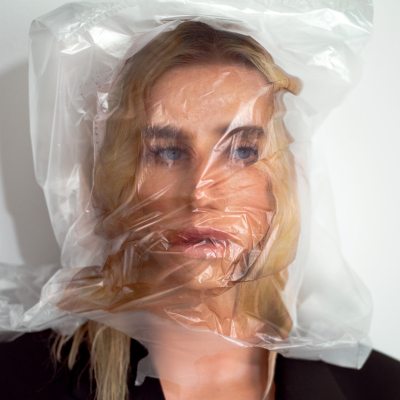Kesha
Click  on photo to download high resolution version
on photo to download high resolution version
All rights reserved. Photos are for editorial use only.
Photos
Videos
Latest ReleaseView All
Gag Order
Release date: 5.19.23
Label: Kemosabe/RCA Records
Press Releases View All
Kesha Shines a Light On Her Dark Depths On New Album ‘Gag Order’
Read MoreKesha Teases ‘Gag Order’ Album With “Eat The Acid” & “Fine Line”
Read MoreKesha Announces New Album ‘Gag Order’, Out May 19
Read MoreBiography View
When the world changed, so did Kesha. The glitter-strewn dance-pop queen had just released her fourth album, High Road, in January 2020 when reality as we knew it came to a screeching halt. For the first time since entering the pop machine in 2008, Kesha confronted herself in the discomfiting silence.
One day, in that initial perilous pandemic spring, Kesha walked to the grocery store to buy flowers. “On the way back, I couldn’t stop crying,” she recalls. “I was just sobbing walking down the street with my bouquet of flowers.” Paralyzed by anxiety, worry, doubt, and fear—for herself, for her family, the world—she felt desperate enough to turn to prayer. “It set me down this trip, wondering, what’s the point of all of this? What is the point of me singing silly songs into the ether? Does it have a bigger purpose? Is this worth anything to anybody?”
She found herself considering “how love is the most important thing, if not the only thing.” It was like a vivid visualization of an interior rearrangement. That day, Kesha felt her higher consciousness revealing itself—or “some kind of god”—illustrating a path forward. What followed was a process of acknowledging all that she cannot control. “I had this beautiful, heartbreaking, cathartic, raw, scary moment where I felt like I had to surrender: to give up the illusion of power and control,” Kesha says.
The cracked-open music of Gag Order followed – a title referring to opening herself up to emotions that had before been seen as off-limits. Kesha woke up the next day and immediately set out recording “Eat the Acid,” which would become the second track on her most personal and realized album by a staggering margin. “I just sang it into my phone,” she says, and soon began working on the song over a Zoom session with her mother, the songwriter Pebe Sebert, and her friend and producer Stuart Crichton. “I told them, ‘I feel like I experienced a spiritual awakening and an ego death at the same time and I want to make music that sounds like that.’”
That initial iPhone recording ended up as the final vocal take on Gag Order—at the encouragement of the legendary Rick Rubin, who produced the album. With Kesha acting as executive producer, Gag Order is a daring sonic rebirth and her most cohesive vision. From its hymns of self-awareness (“Living in My Head”) and liturgical minimalism (“Eat the Acid”), to the gospel-flecked exaltation (“Only Love Can Save Us Now”) and bracing balladry (“Hate Me Harder”), this is the diaristic music of a woman excavating her life and creating a new world. It is the expansive, searching sound of an artist experimenting her way towards a kind of personal liberation. It’s patently unformulaic, and so lucid it can feel psychedelic.
Gag Order was a fundamentally transformative collaboration. Rubin encouraged Kesha to turn radically inward to explore her own soul, instigating a challenging process of self-realization. “This life was never mine,” Kesha sings on “Fine Line.” “I can’t keep wasting time.” Gag Order sacrifices none. “This was the first time I ever made a record that wasn’t geared towards: ‘What’s the first single?’ ‘What’s going to perform well at radio?’ That was never a conversation. It was a beautiful change that I had never experienced before—to work with someone who valued me and wanted to bring out who I am without ever once considering the margin of profit”
“I feel like I went through some of the stages of grief,” Kesha adds. “This process allowed me to tap into emotions that I otherwise haven’t let myself access. I got in touch with anger. I got to be insecure. I got to be honest. Rick encouraged me to go as deep as possible. It’s scary to dive into the deep end, but it’s like swimming: you need someone watching at the shore to make sure you don’t drown.”
Never is this risk-taking more evident than within the spare, brutal honesty of “Fine Line,” which Kesha calls one of her favorite songs she’s written. Like a statement-of-intent for Gag Order, it’s a song of profound dualities about both the safety and trap of silence—“The truth keeps roaring like a lion,” Kesha sings, “That’ll be the cross I’ll die on”—filled with biting, speak-sung lyrics and celestial loops. “It’s me expressing my anger about the whole fucking game, and how I can’t play it anymore,” she says. “It’s exhausting and not sustainable to cater to everyone else’s opinions of who you are.”
Kesha wrote the previous track, the chantlike “Living in My Head,” in the throes of a panic attack. The closer “Happy” portrays the divine complexity of speaking one’s truth: “By expressing my sadnesses and insecurities, I came into confidence,” Kesha adds. “That song is like a promise to myself to put that first from here on out” because hard as it may be, honesty is an act of self-love. Gag Order is pitched to honesty from the inside out: “Rick kept taking off all the fancy production, making it super minimal so you could really hear the lyrics,” Kesha says. “That felt symbolic of how he wanted me to really be honest—to have my voice and melodies stand out and shine through. It was empowering and horrifying.”
“I know rationally that there is no light without dark, but when it came to sharing emotions I viewed as ugly, I wanted to be kind to the listener and spare them from what I perceived as negativity. I now see that it was just me avoiding what being human is. I needed to love myself enough to give a voice to the dark. Without it, I am unbalanced, and am not practicing real self-love.”
As it walks through grief, Gag Order still claws its way towards hope. One interlude features the first-ever cleared samples of late, world-renowned guru Ram Dass to appear outside of explicitly spiritual recordings. “Only Love Reprise” features a sample of Kesha’s niece (“a sweetie pie”) as a reminder to honor your childlike self and your connection to playfulness. (Kesha began carrying around a picture of herself as a kid while making the album.) Owing to that spirit, “All I Need Is You” is a love song that Kesha wrote to a true soulmate: her cat. The following track, “The Drama,” culminates with Kesha expressing a deep-rooted desire—to be reborn as a house cat—delightfully layered over an interpolation that harkens back to her childhood playing punk songs with her brother: The Ramones’ 1978 burnout anthem “I Wanna Be Sedated.”
“This song I had never realized was so dark, and I related. When paralyzed with anxiety I wanted to both be sedated and reserve my place in my next reincarnation as a domesticated indoor housecat.”
Kesha has, for the record, never actually taken acid. As a child, her mother warned her against it, as she delineates in “Eat the Acid”’s lyrics: “You said don’t ever eat the acid/If you don’t wanna be changed like it changed me.” But the events leading to Gag Order felt like a metaphorical approximation of that experience, as Kesha’s sense of herself and her music clarified and intensified irrevocably. “As an artist, sometimes self-exploration is the art,” she adds. “You become a vessel for what comes of that.”
“It’s liberating to show up as who you truly are,” Kesha reflects, “and to not gloss it over or Facetune it or filter it. To really strip it all back and bare my soul felt scarier than anything I’ve ever done. I realized that before, I was kind of making music to please other people. But that’s not where great art is made. To not push myself or take risks felt like I was doing a disservice to my artistry. I don’t get to be an artist and only make safe music; that’s not why I’m here. To do the same safe shit over and over started to feel like spitting in the face of the fact that I’m an artist. The best art should scare me a little bit. This whole album scared the shit out of me.”
“It was a necessary step. Now that I’ve written it, I feel so much more complete and whole—like I’m not pretending with everyone. It’s a moment I can say I’m really proud of. I would love for people to sit and get quiet with this record, and maybe get quiet with themselves, and just know that having all these different emotions is safe, it’s okay. And you’re not alone. Not only is it okay, it's powerful, and I am now living with the power that I found in the darkness.”
Online
- Official Site
- .(JavaScript must be enabled to view this email address)
- YouTube
Press Clippings
- AllMusic
- American Songwriter
- Billboard
- Billboard 2
- Broken Record podcast
- Consequence
- GRAMMY.com
- New Yorker
- Northern Transmissions
- NPR - All Things Considered
- NPR - Main Character of the Day
- NPR Music
- NYLON
- NYLON (feature)
- Our Culture Magazine
- People Magazine
- Pitchfork (review)
- Pitchfork (10 albums to listen to)
- Riff Magazine
- Rolling Stone (interview)
- Rolling Stone (review)
- SELF
- The FADER
- V Magazine
- Vogue
- Vulture
- Wall St Journal "My Monday Morning"
- WXPN
- Billboard (Cover Story)
- Billboard ("Raising Hell" video)
- Brooklyn Vegan ("Raising Hell" video)
- Bustle ("Raising Hell" video)
- Consequence Of Sound ("Raising Hell" video)
- Cosmo (Expensive Taste Test)
- Entertainment Weekly ("Kesha and the Creepies") Podcast
- Entertainment Weekly ("Raising Hell" video)
- Entertainment Weekly (album round up)
- Jimmy Kimmel Live (Performance)
- Just Jared ("Raising Hell" video)
- People Mag ("Raising Hell" video)
- Pitchfork ("Raising Hell" video)
- MTV ("Raising Hell" video)
- Music Week (newsletter)
- New York Times (Interview)
- NPR ("Raising Hell" video)
- NYLON interview
- Nylon ("Raising Hell" video)
- Rolling Stone (Interview)
- Rolling Stone ("Raising Hell" video)
- Rolling Stone (The First Time)
- Slant Magazine (Album review)
- Song Exploder
- Stereogum (Album review)
- Stereogum ("Raising Hell" video)
- Teen Vogue (Playlist of My Life)
- The Atlantic
- THE FADER ("Raising Hell" video)
- UpRoxx ("Raising Hell" video)
- V Mag (Interview)
- Vulture ("Raising Hell" video)
- WSJ Interview
- CBS Sunday Morning
- Ellen ("Praying" performance)
- Fallon ("Praying" performance)
- Good Morning America ("Praying" performance)
- Good Morning America ("Woman" performance)
- Good Morning America (interview)
- Billboard
- BuzzFeed Tour Diary
- Entertainment Weekly
- HuffPost
- Lenny Letter
- Mic
- NPR Music
- Nylon
- Rolling Stone
- Rolling Stone (Feature)
- Time.com (essay)
- Us Weekly - "25 Things You Don't Know About Me"
- AllMusic
- The AV Club
- Consequence of Sound
- Entertainment Weekly
- The Los Angeles Times
- The New York Times
- Paste
- Pitchfork
- PopMatters
- Rolling Stone
- SPIN
- Tiny Mix Tapes
- UpRoxx
- Yahoo! Music
- Billboard
- Boston Globe
- Chicago Sun-Times
- Chicago Tribune
- The FADER
- LA Times
- LA Weekly



















